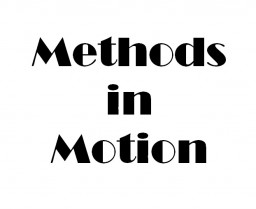
When I was asked to contribute to this blog I was flattered and also flustered. As an insecure academic I have always felt a tad uncertain about the strengths or otherwise of my methodological contribution. The words epistemology and ontology should chime with the innate curiosity that drives my academic enquiry, but instead they have historically left me scratching my head. ‘Isn’t it enough to just generate knowledge and offer insight?’ has been my stock response to date.
And thus, I have, traditionally, seen my research methodology as a means to an end. It gives me the tools to help interpret and subsequently explain what is going on in the field, which in my case is how issues of identity and culture impact upon and drive the foreign policy of Iran, and the wider politics and international relations of the Middle East. I suspect my academic background has something to do with the conceptual funk I find myself in when confronted with questions of methodology. My PhD was in Middle Eastern Studies, and the beauty of area studies is the sheer diversity of insight that one can draw upon. You share your academic life with linguists, historians, sociologists, political scientists, classicists and every other shade of discipline in between. However, if you don’t have a strong disciplinary affinity yourself, then you can find yourself scratching around, confused. I chose the role of an academic magpie, picking up on the intellectual traditions and debates that best suited my research agenda, but the result was that I was often left with a focus very much on the empirical rather than theoretical.
That scratching around initially saw my work finding a natural affinity with the strand of International Relations (IR) that drew upon social constructivism, and with it an attendant focus on how issues of culture and identity affect relations between states. For my own work, however, I wanted to delve deeper. I was not, and am still not really guided by the International Relations scholar’s desire for systemic explanations of how the world is ordered. Rather, I want to see why and how certain themes were used by states (in my case, Iran) in their diplomacy and wider foreign policy. So, I learnt Persian, I went to Iran - I ‘immersed’ myself in the culture of my object of study during my PhD. One might see this as me acting like a true 19th Century orientalist seeking the exotic other, but it was borne of the desire to see things from the inside out, rather than rely on the misrepresentations of Iran that typified much Western media and even academic analyses of the country.
In reflecting on the notion of why methods are important because what we know is changed by how we know it, I have come to realise that they are not just the means to an explanatory end. I might choose certain explanatory or theoretical frameworks because they suit my interests, but the reason I do this is because it is not sufficient to just offer observation or description alone. If I want to see how a certain identity is enacted through a state’s foreign policies or diplomacy, then there needs to be something that provides an explanatory framework for how those things are articulated. Picking something as amorphous and contestable as identity in states’ foreign policies can be trickier than focusing on, say, the number of weapons or amount of money it might have and use. As a result, I have to draw on the works that best give meaning to these issues. That means that the knowledge and explanation I’m producing is in one way utterly subjective - they are ultimately a product of my own narrow interests and of certain intellectual currents. But for me the methods help give a meaning to the explanation, and in turn - the explanation gives meaning to the methods themselves.
More on MiM
The Methods in Motion blogs are by researchers linked to the Centre for Citizenship, Identities and Governance. The blogs represent their opinions emerging from research in progress, and do not necessarily represent the views of the Research Centre or Open University. You can discover more about Methods in Motion on the CCIG website.






Rate and Review
Rate this article
Review this article
Log into OpenLearn to leave reviews and join in the conversation.
Article reviews